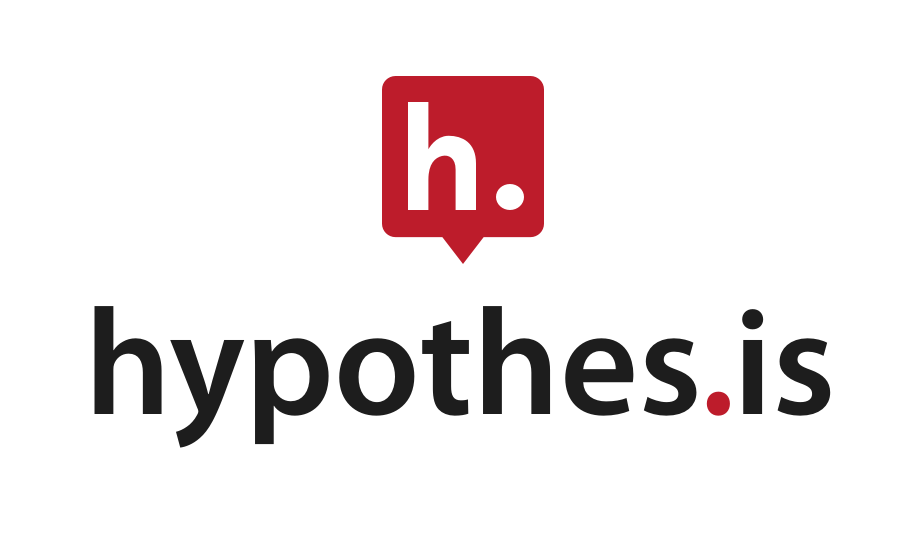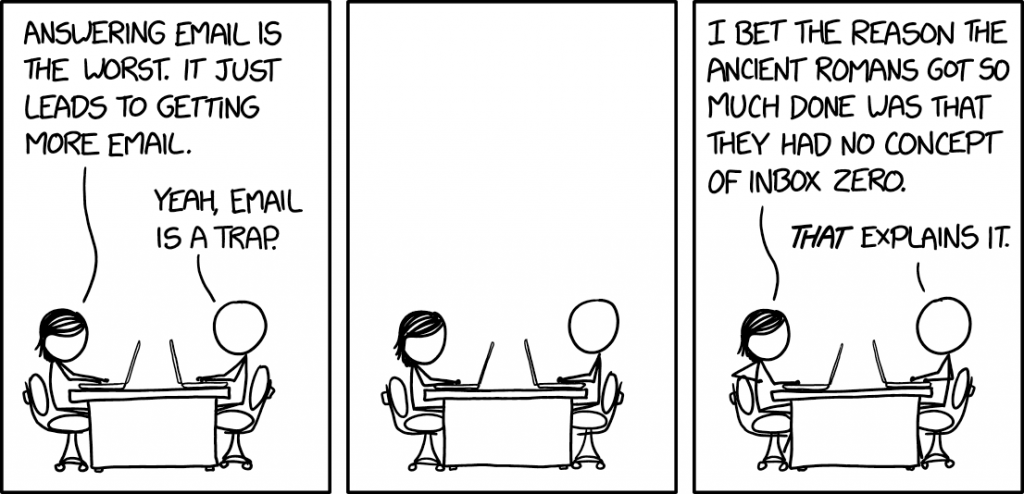Development without critique
Hypothes.is is an annotation service. I can’t remember who recommended I follow his annotations, but Chris Aldrich’s gleanings are worth following via RSS.
For example, I never would otherwise have come across this, from a Discord chat room, which got me thinking about roles within networks and communities.
I think this is the interplay where things get lost. There are very few theorizers, and tonnes of enactors. And everyone ends up thinking the enactors are theorizers, but they're not. They're developing specific methods without building up — and especially without critiquing — the underlying theory.Source: Chris Aldrich | Hypothesis
Life is a great bundle of little things
As I'm catching up with news from various sources and bookmarking articles to come back and share via Thought Shrapnel, I also come across interesting tools and resources.
Here are some of them that I thought were interesting enough to share.

ArchiveWeb.page is "the latest tool from Webrecorder to turn your browser into a full-featured interactive web archiving system!"
Bookfeed.io is "a simple tool that allows you to specify a list of authors, and generates an RSS feed with each author’s most recently released book."
Loudreader is "the world's only ebook reader that can open .azw3 [and] .mobi files in a browser!"
NES.css is "a NES style (8bit-like) CSS framework." (also see Simple.css)
novelWriter is "a markdown-like text editor designed for writing novels and larger projects of many smaller plain text documents."
Open Peeps is a hand-drawn illustration library. "You can use Open Peeps in product illustration, marketing imagery, comics, product states, user flows, personas, storyboarding, invitations for your quinceañera...or anything else not on this list."
Pattern Generator provides you with a way to "create unique, seamless, royalty-free patterns".
Same Energy is "a visual search engine. You can use it to find beautiful art, photography, decoration ideas, or anything else."
Screenstab allows you to "cut down on time and effort by auto-generating appealing graphics for marketing materials, social media posts, illustrations & presentation slides."
Quotation-as-title by Oliver Wendell Holmes. Image by Jessica Lee.
Reading the web on your own terms
Although it was less than a decade ago since the demise of the wonderful, simple, much-loved Google Reader, it seems like it was a different age entirely.
Subscribing to news feeds and blogs via RSS wasn’t as widely used as it could/should have been, but there was something magical about that period of time.
In this article, the author reflects on that era and suggests that we might want to give it another try:
Well, I believe that RSS was much more than just a fad. It made blogging possible for the first time because you could follow dozens of writers at the same time and attract a considerably large audience if you were the writer. There were no ads (except for the high-quality Daring Fireball kind), no one could slow down your feed with third party scripts, it had a good baseline of typographic standards and, most of all, it was quiet. There were no comments, no likes or retweets. Just the writer’s thoughts and you.I was a happy user of Google Reader until they pulled the plug. It was a bit more interactive than other feed readers, somehow, in a way I can't quite recall. Everyone used it until they didn't.
The unhealthy bond between RSS and Google Reader is proof of how fragile the web truly is, and it reveals that those communities can disappear just as quickly as they bloom.Since that time I've been an intermittent user of Feedly. Everyone else, it seems, succumbed to the algorithmic news feeds provided by Facebook, Twitter, and the like.
A friend of mine the other day said that “maybe Medium only exists because Google Reader died — Reader left a vacuum, and the social network filled it.” I’m not entirely sure I agree with that, but it sure seems likely. And if that’s the case then the death of Google Reader probably led to the emergence of email newsletters, too.I don’t think we can turn the clock back, but it does feel like there might be positive, future-focused ways of improving things through, for example, decentralisation.[…]
On a similar note, many believe that blogging is making a return. Folks now seem to recognize the value of having your own little plot of land on the web and, although it’s still pretty complex to make your own website and control all that content, it’s worth it in the long run. No one can run ads against your thing. No one can mess with the styles. No one can censor or sunset your writing.
Not only that but when you finish making your website you will have gained superpowers: you now have an independent voice, a URL, and a home on the open web.
Source: Robin Rendle
Your New Year's resolution for 2018? Ditch Facebook.
If something’s been pre-filtered by Cory Doctorow and Jason Kottke then you know it’s going to be good. Sure enough, the open memo, to all marginally-smart people/consumers of internet “content” by Foster Kamer, is right on the money:
Literally, all you need to do: Type in web addresses. Use autofill! Or even: Google the website you want to go to, and go to it. Then bookmark it. Then go back every now and again.On our flight yesterday, my son asked how I was still reading articles on my phone, despite it being in aeroplane mode. I took the opportunity to explain to him how RSS powers feed readers (I use and pay for Feedly) as well as podcasts.
Instead of reading stories that get to you because they’re popular, or just happen to be in your feed at that moment, you’ll read stories that get to you because you chose to go to them. Sounds simple, and insignificant, and almost too easy, right?
This stuff sounds obvious and easy when you’ve grown up with the open web. But given that the big five tech companies seem to be trying to progressively de-skill consumers, we shouldn’t be complacent.
By going to websites as a deliberate reader, you're making a conscious choice about what you want a media outlet to be—as opposed to letting an algorithm choose the thing you're most likely to click on. Or! As opposed to encouraging a world in which everyone is suckered into reading something with a headline optimized by a social media strategist armed with nothing more than "best practices" for conning you into a click.Kamer blames Facebook, and given its impact on the news ecosystem, he's correct in doing so:
Their goal, as a company, is to keep you on Facebook—and away from everything else—as long as they possibly can. They do that by making Facebook as addictive to you as possible. And they make it addictive by feeding you only the exact stripe of content you want to read, which they know to a precise, camel-eye-needle degree. It's the kind of content, say, that you won't just click on, but will "Like," comment on, and share (not just for others to read, but so you can say something about yourself by sharing it, too). And that's often before you've even read it!It's a great read. Why not start by adding Thought Shrapnel's RSS feed to your shiny new feed reader? There's plenty to choose from!
Source: Mashable

